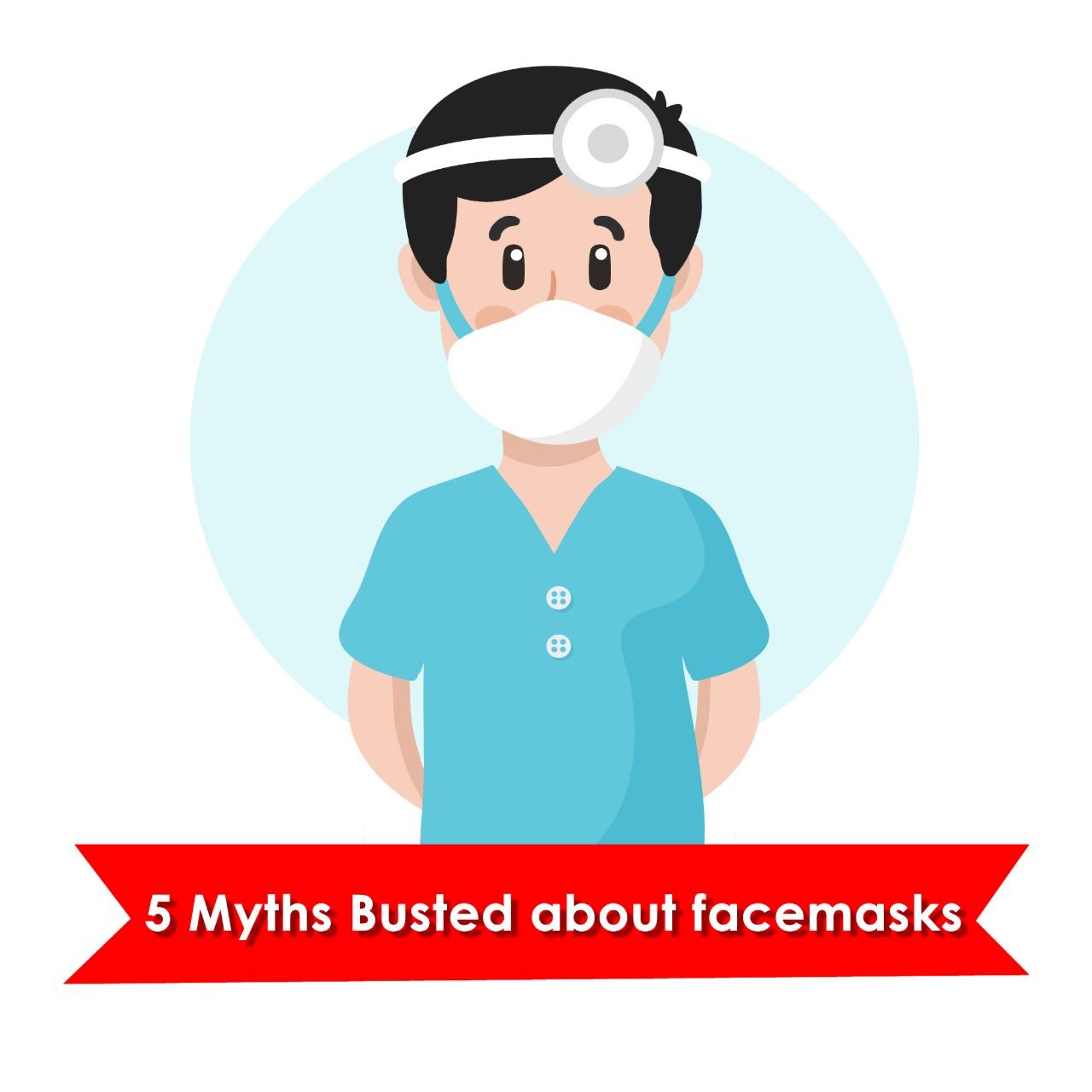With the world under lockdown and practicing social-distancing, basic tasks of day-to-day life have become a question of to do or not to do. And along with this enormous change in lifestyle and routine has come probably the biggest question of the moment: How do I protect myself from catching COVID-19? While a lot of people turn to using masks and gloves as a cautionary measure when outside, its application and directions to use and dispose are more intricate that most of us have come to believe. This follows a further discussion of the effectivity of face masks in the wake of this massive pandemic.
So, should you wear a mask? Here are some mythbusters about facemasks during COVID-19.
Myth #1 “Wearing mask guarantees safety from catching COVID-19.”
Truth- Probably the most common effect of using a facemask is getting a false sense of security.It needs to be understood that while a lot of us, if wearing masks, are wearing surgical facemasks; thin, loose-fitting disposable medical masks, used by health professionals to prevent catching bacteria in liquid droplets, in a clinical setting. The loose-fitting makes it less effective as it exposes the face and nose to the air-borne virus and lesser effective if not used, removed or disposed of properly. It is usually a one-use mask and needs to be disposed of when as soon as it gets damp.It is seen that wearing masks usually makes people overstep other more crucial protection guidelines such as washing hands or distancing oneself. Another belief says wearing masks leads one to touch one’s face more than usual for adjusting, removal, etc.
Myth #2 “N95 Respirators should be worn instead of Surgical Masks.”
Truth- While N95 Respirators are believed to be more functional with higher filtration rates
than Surgical Masks, it is usually advised to not be used by general public in a natural setting.N95 Respirators need to be fitted, maintained and sanitized by following proper directions. It shouldn’t especially be worn by children, people with facial hair and people with respiratory problems as it may make it difficult to breathe, in some cases.
With the world facing a shortage of masks and other such medical equipments, N95 Respirators are to be more crucially reserved as Personal Protective Equipment (PPE) for health-care workers.
Myth #3 “Homemade masks are just as effective as Surgical masks.”
Truth- Paucity of masks and protection equipment or it being reserved for healthcare
professionals has led people to DIY-ing their own masks and sanitizers at home. But exactly how helpful are they?Although studies show that homemade masks can filter out upto 60% particles, depending on the quality of the fabric, they don’t come close to the effectivity rates of the medical masks for obvious reasons of the technicalities involved in their making. A homemade mask serves its purpose upto the limit where it prevents from catching virus from larger droplets, much like surgical masks. Its sanitization will depend upon the fabric and frequency of use. Related researches are underway and in the mean time, homemade masks are still appreciated and welcome in the sense that something is still better than nothing.
Myth #4 “I can make a mask out of any piece of cloth/scarf not in use.”
Truth- Homemade masks can still beat surgical masks in two arenas: A) right fabric, B) right fitting. If you have chosen to craft up a mask of your own, a lot has to be kept in mind. For it to be truly functional, a thick fabric with tight weave provides for an ideal material and should be sewn or put together in a way that fits perfectly from nose to mouth or chin. Lastly, it should be seen if it is convenient to breathe through the mask. Loose-fitted, thin fabric like that of scarves or bandanas can be used but won’t perform well. Homemade masks should be cleaned regularly according to use and should never be shared with others.
Myth #5 “Wearing masks doesn’t help in stopping the spread of Corona Virus.”
Truth- This might sound contradicting to Myth #1 but isn’t much so. While masks can inculcate a false sense of security, they are still very much relevant in preventing further spread of the virus by some extent, that is, if worn by the right people.World Health Organization advises people to reserve masks for those infected, showing symptoms, healthcare professionals and care-givers. Originally done to prevent hoardings and
instead saving them as essential PPE for medical workers, experts say that facemasks are meant to be worn by those sick or infected to protect others from the infection but aren’t as effective if worn to protect oneself from contracting the virus. In addition to that, WHO has issued strict guidelines to go along with the use of facemasks.
Conclusion
While there are researches being done to study the nature of Corona Virus and how it can be prevented from spreading that has led to conclusions that are open to further study, it has only given way to myths and rumors being spread. Washing hands frequently and staying in still beats facemasks in sense of protection by a high margin. Be updated with the right information and verify your sources. You can also visit WHO’s website for all that you must know.
